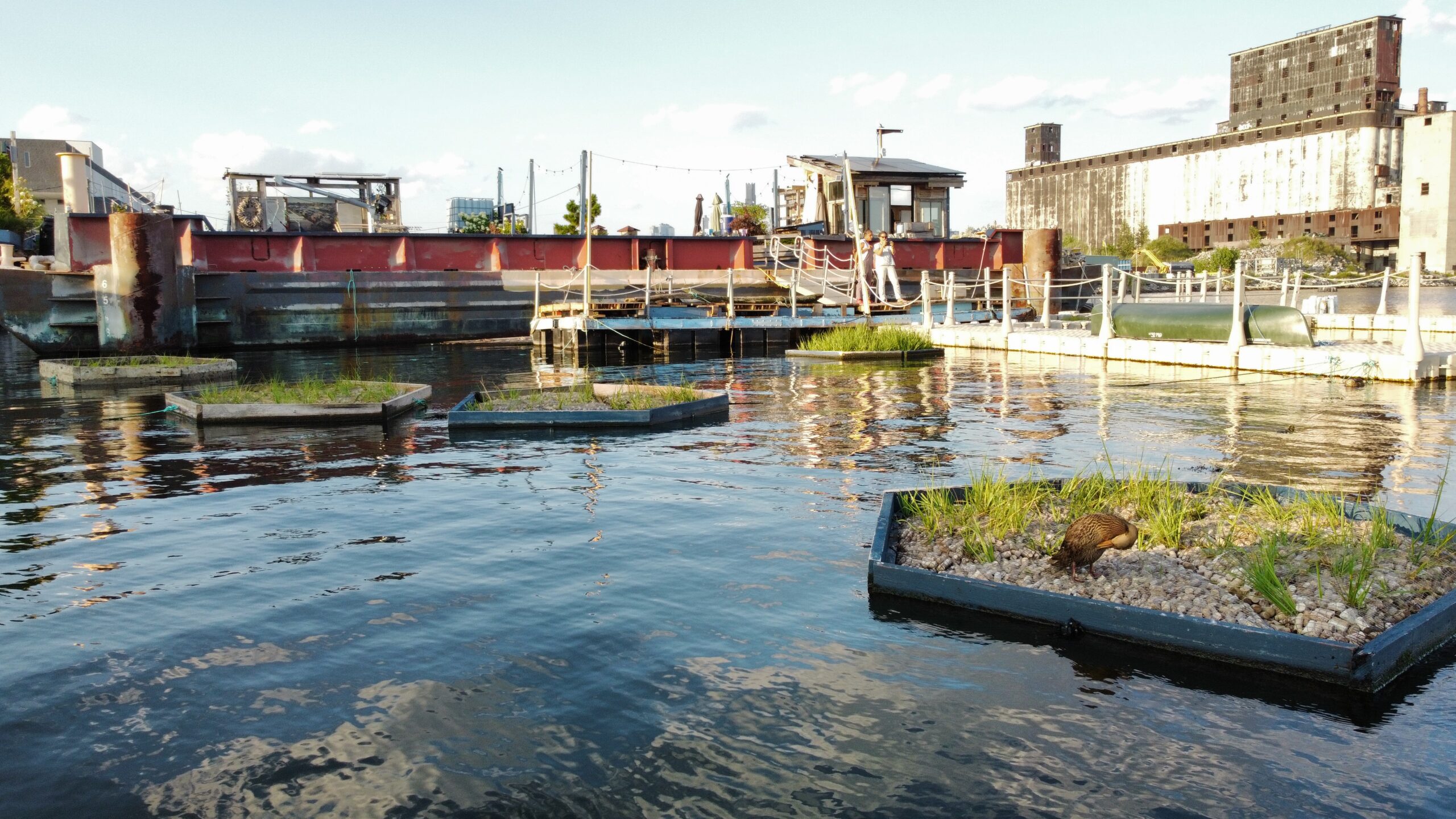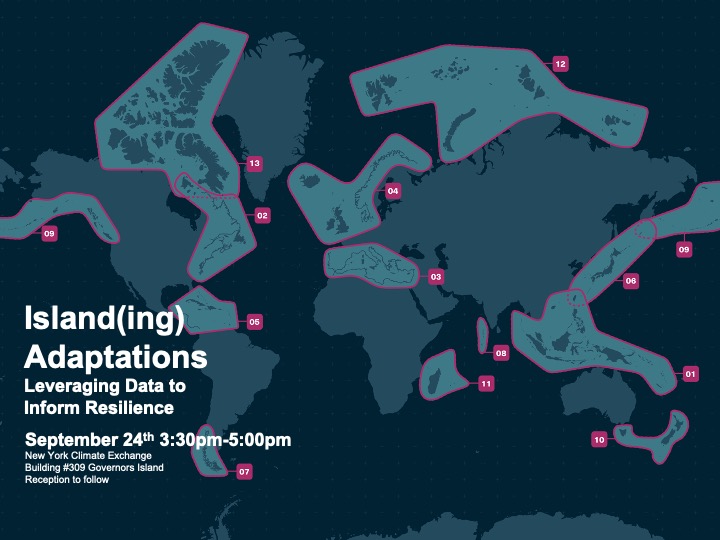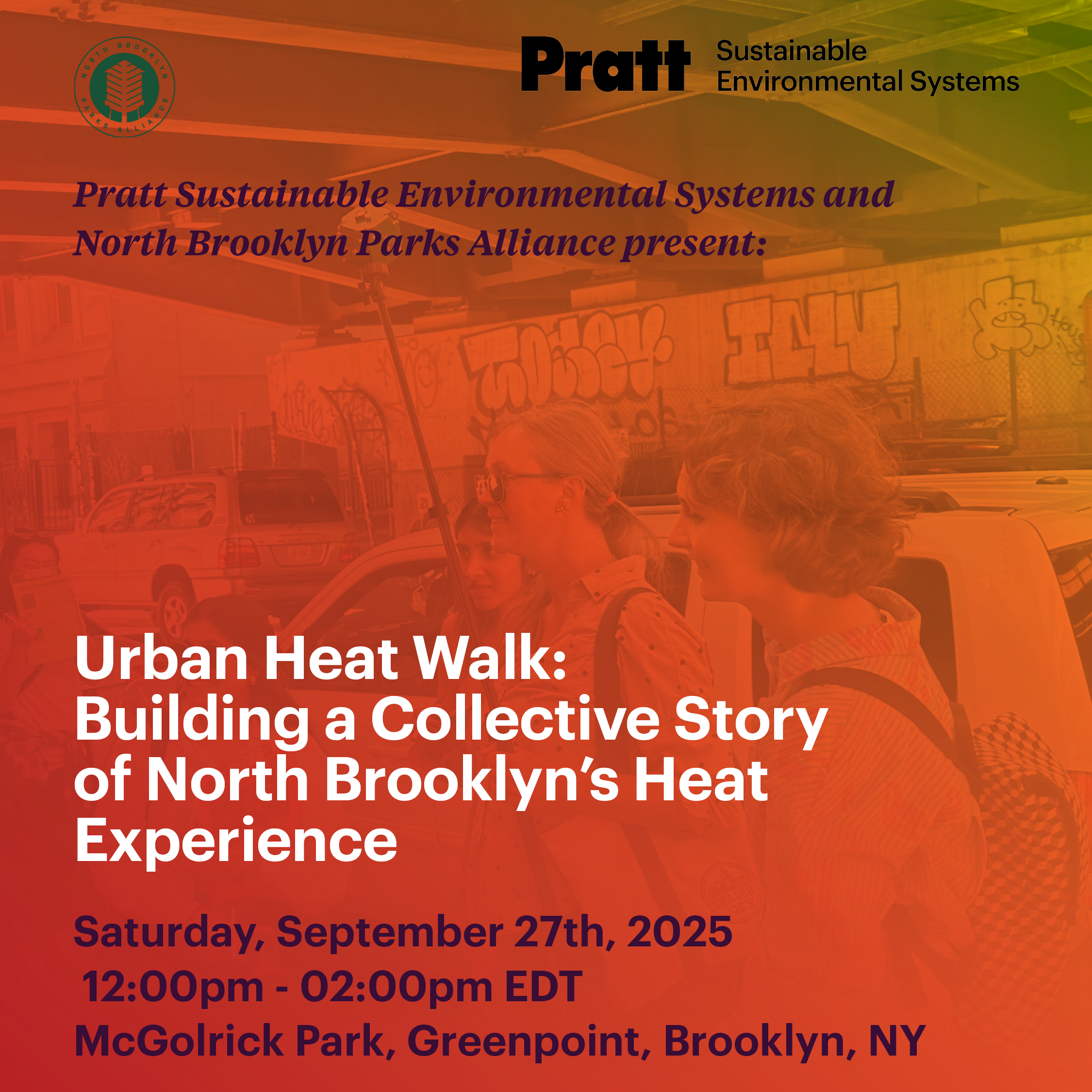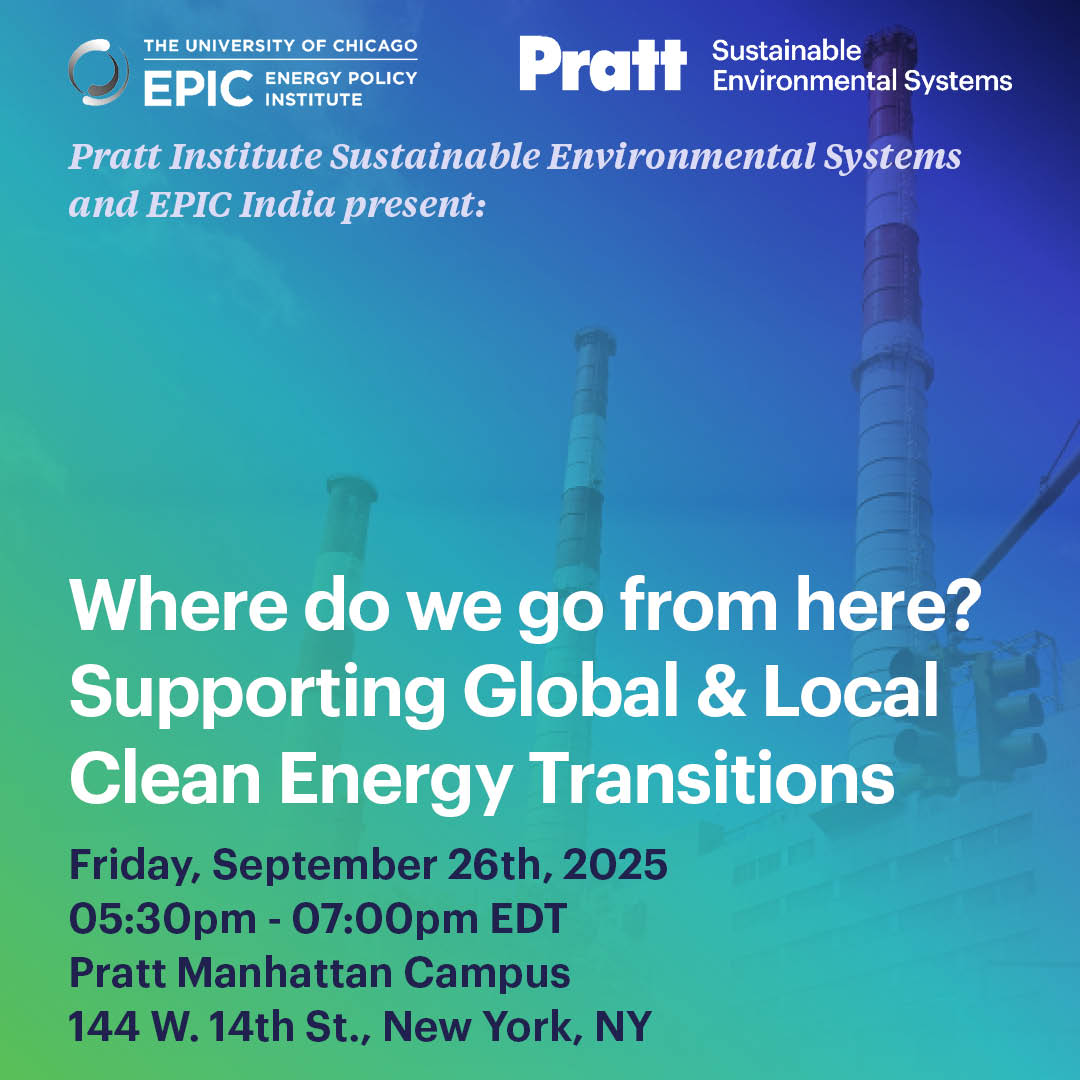The climate crisis is reshaping ecosystems, economies, and everyday life around the world, demanding bold new thinking and action. With sustainability woven throughout its curriculums, campus culture, research projects, and strategic initiatives, Pratt Institute is helping to lead the effort toward a more resilient future.
Here is a look at some of the ways faculty and students are working on climate solutions at Pratt, from protecting New York’s coastal communities to exploring sustainable materials and more.
Building a Resilient NYC
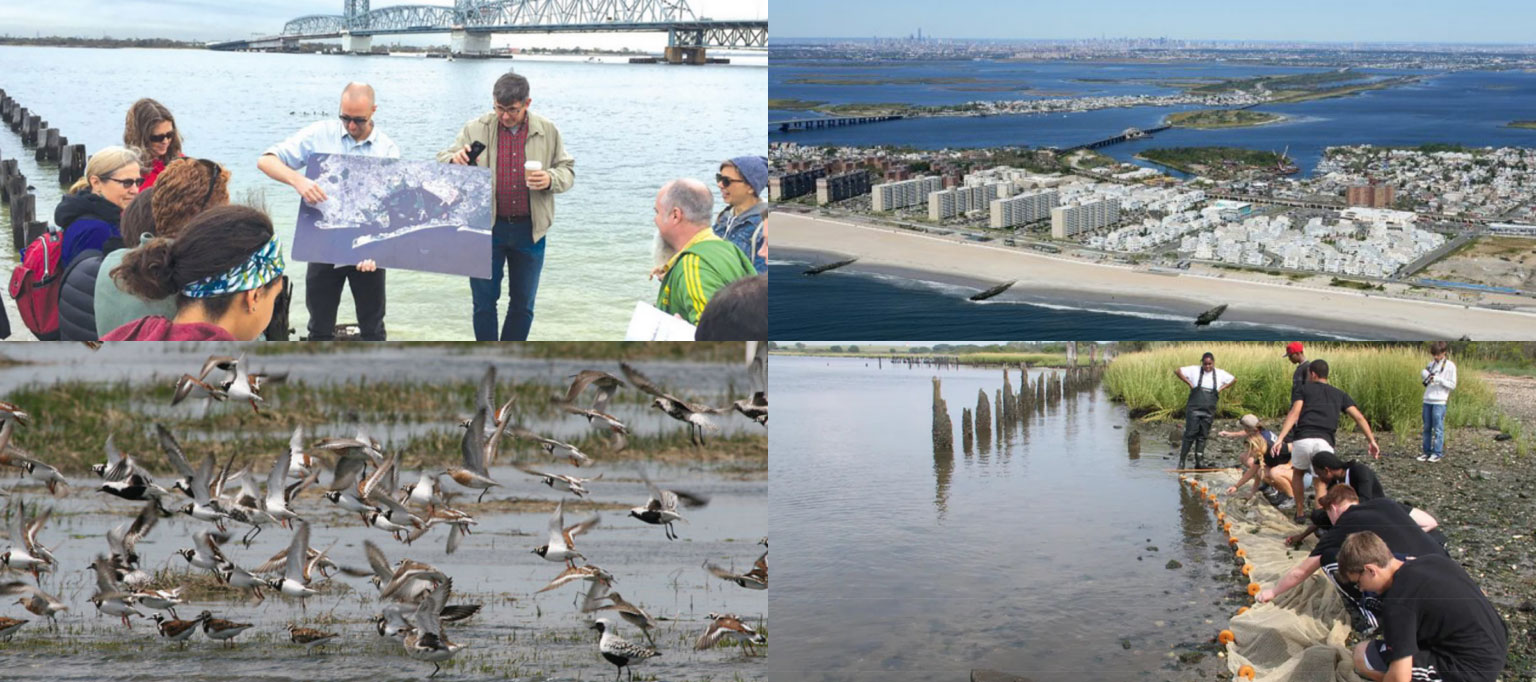
Coastal cities like New York are on the frontlines of the climate crisis, facing rising sea levels, stronger storms, and increasing infrastructure vulnerability.
Pratt faculty and students have been working for more than a decade on the Recover, Adapt, Mitigate, and Plan (RAMP) initiative, which helps New York’s shoreline communities adapt to the realities of climate change. John Shapiro, professor in the Graduate Center for Planning and the Environment (GCPE), published an op-ed urging the city to take immediate action to prevent catastrophic flooding from future storms similar to Superstorm Sandy.
In one neighborhood especially affected by Sandy—Red Hook, Brooklyn—GCPE adjunct associate professors Gita Nandan and Elliott Maltby have been collaborating with residents on a series of local resilience interventions, including floating food gardens, an urban farm, and improved stormwater management.
Recognizing the urgency of stormwater management in coastal cities, Pratt founded the Center for Climate Adaptation, which has conducted global research on resilient infrastructure, energy-efficient construction, water supply systems, and adaptive reuse.
Pratt’s work on climate resilience also extends into economic and industrial systems. The Spatial Analysis & Visualization Initiative (SAVI) is partnering with the Urban Manufacturing Alliance (UMA) and the Resilience, Education, Training, and Innovation (RETI) Center to analyze flood risk and propose adaptive strategies for New York’s manufacturing industry.
The Decarbonization Group, meanwhile, is working to introduce mass timber as a low-carbon alternative to concrete and steel in the city’s building industry.
In low- and moderate-income neighborhoods of Brooklyn, the Pratt Center for Community Development is advancing home retrofits through its EnergyFit NYC initiative. The program equips small 1-4 family homes—typically underserved by climate policy efforts—with energy-efficient upgrades such as insulation, air sealing and weather stripping, and high-efficiency appliances for free. This initiative serves as a proof-of-concept for scalable decarbonization, especially in underserved neighborhoods, and supports New York State’s broader climate goals.
Advancing Climate Literacy
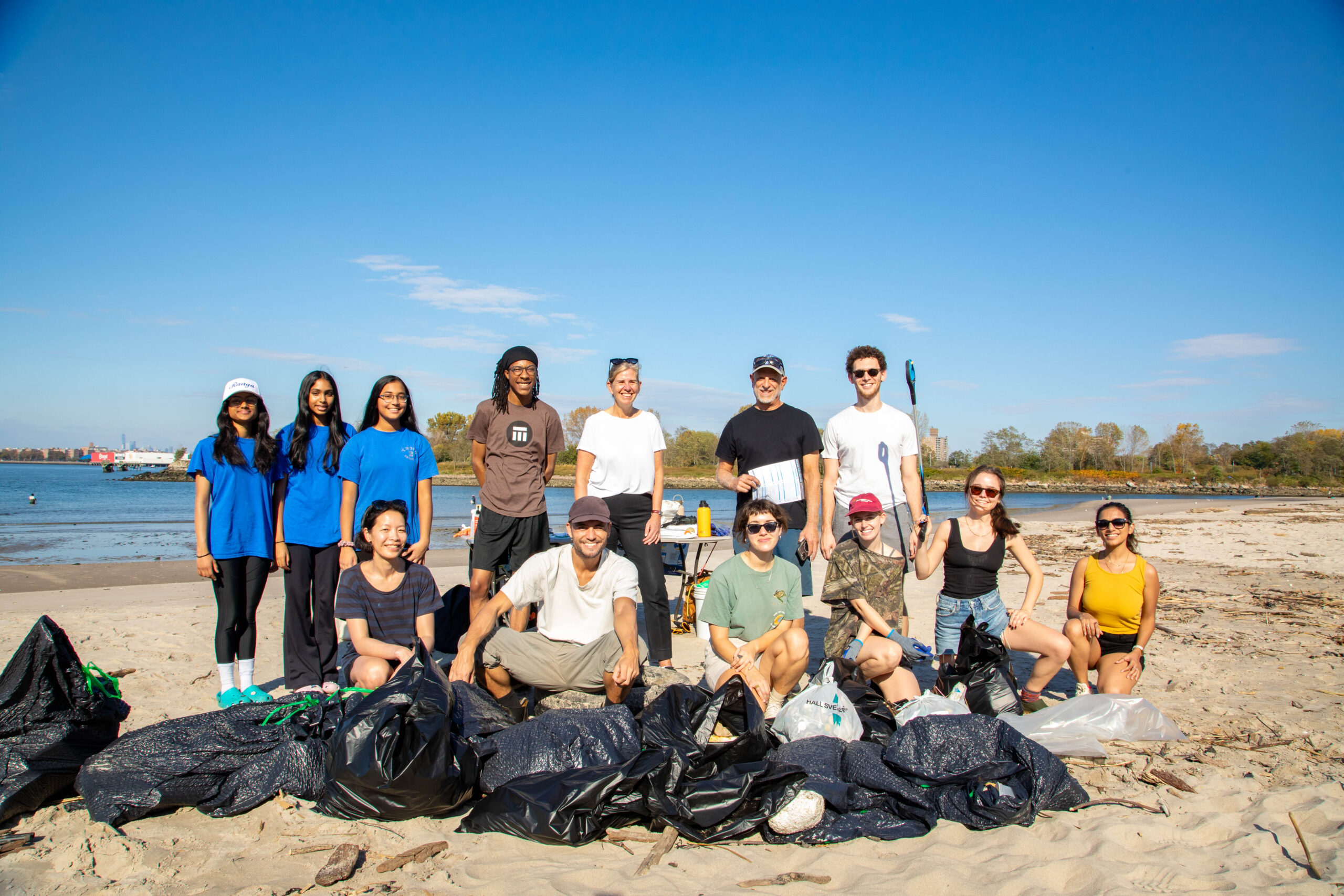
Pratt’s leadership role as a founding core partner of The New York Climate Exchange on Governors Island underscores its broader commitment to climate solutions. The Exchange is developing research and supporting teaching and community engagement that addresses the global climate crisis and champions climate justice and equity for those most impacted by climate change.
The 2025 Research Open House showcased Pratt-wide research efforts, many of which focused on sustainability, including Climate Stories, the winner of the Excellence in Community Engagement award. Swati Piparsania, assistant professor of industrial design, designed the mobile educational platform to use play-based learning and interactive storytelling to help NYC public school students build environmental awareness and responsibility.
New York City students are also learning about energy efficiency in the building sector through Passive House for Everyone, a nonprofit founded by In Cho, visiting assistant professor of undergraduate architecture, that stages “ice-box challenges,” in which students build highly-insulated structures using passive house principles.
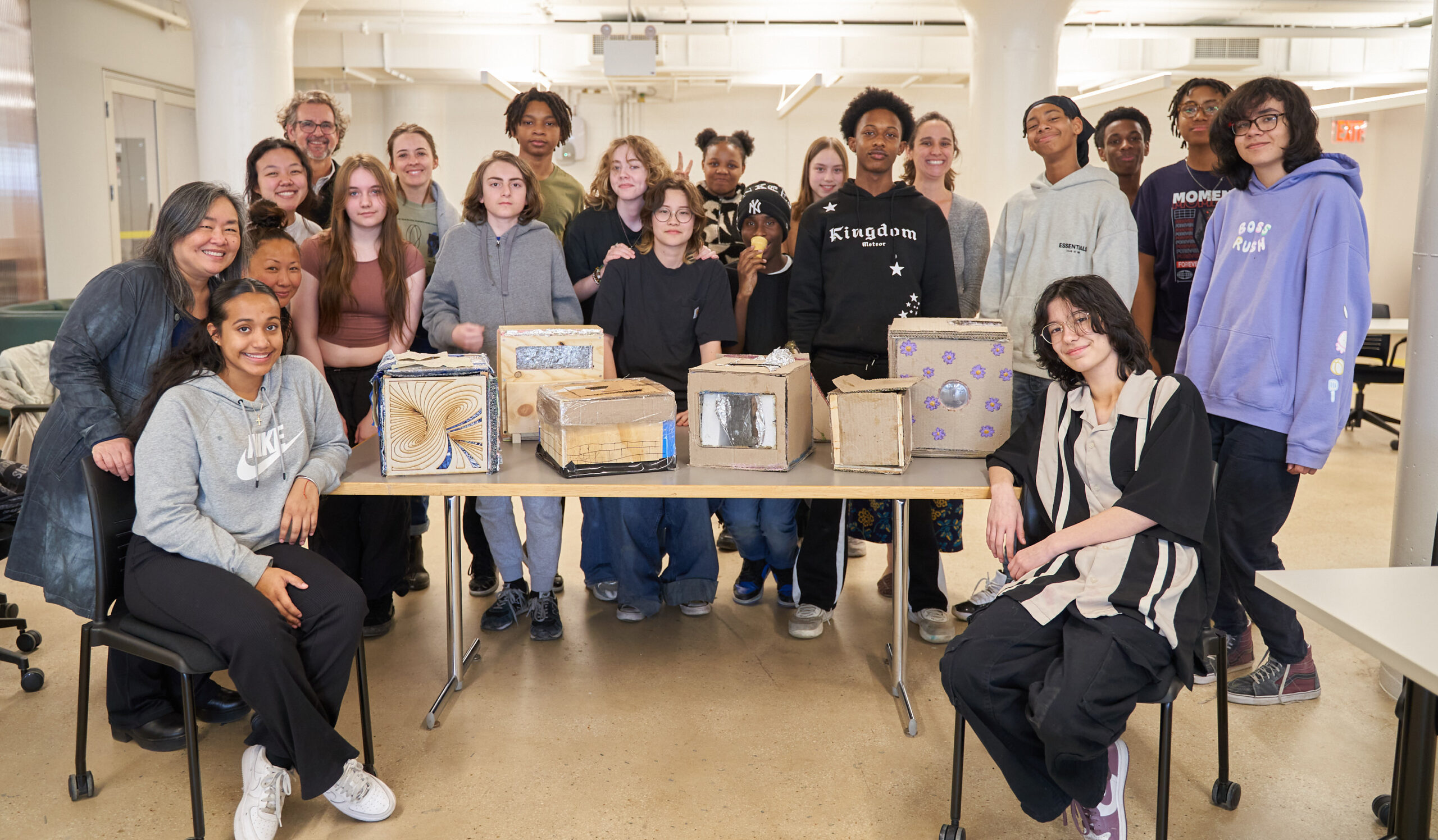
At Pratt, preparing students to become climate advocates begins with building a deep understanding of the causes and impacts of the climate crisis.
The Pratt Sustainability Center has become the nexus for all things climate action on campus, spearheading Pratt Earth Action Week, organizing Departmental Sustainability Coordinators to further incorporate sustainability into courses, and managing the Pratt GiveTake, which diverts more than 12,000 pounds of materials from landfills for use in student projects each year. The Center also helps to run the Partnership for Academic Leadership and Sustainability, which promotes academic sustainability in art and design higher education institutions, and will be hosting its 2025 conference at Pratt.
Other programs foster a deep connection to place and ecology through immersive experience. In the Landscape Architecture program, students begin each fall with Field School, a hands-on study of the plant and animal life of the Catskills. The goal is to help students understand the complexity of ecological systems and how they have evolved throughout history.
Hands-on initiatives like these are supported by academic offerings such as the Sustainability Studies Minor and the Center for Critical Discard Research that let students explore the environmental, ethical, and cultural dimensions of climate action in greater depth and provide frameworks for engaging with pressing environmental challenges across disciplines. This fall, the Center’s founding faculty member, Professor of Social Science and Cultural Studies Carl Zimring, will further his research on transitioning away from consumerism while serving as a scholar-in-residence at the Centre for Advanced Study at the Norwegian Academy of Science and Letters.
The interdisciplinary STEAMplant initiative, meanwhile, funds numerous environmental projects, such as experiments around carbon sequestration and explorations of climate-resilient plants.
Research from the Creative Enterprise Leadership (CEL) program often focuses on how to transition to circular economies, with recent work presented at the Ethical Leadership Cumulus Conference in France outlining how CEL fosters the mindsets, toolsets, and skillsets needed for designers to drive systemic transformation. Through publications like Leading as if Life Matters and involvement in projects such as “Financing for Nature,” CEL faculty explore regenerative economic models.
The Sustainable Environmental Systems (SES) program is designed to meet today’s increasing demand for environmental professionals, uniquely combining environmental science, sustainable design, and climate policy. Throughout the year, professor of SES Yuliya Dzyuban engages with local communities through her “heat walks,” where she maps the heat fluctuations in urban environments as part of an effort to advocate for green spaces and other interventions that mitigate extreme heat.
Developing Circular Materials
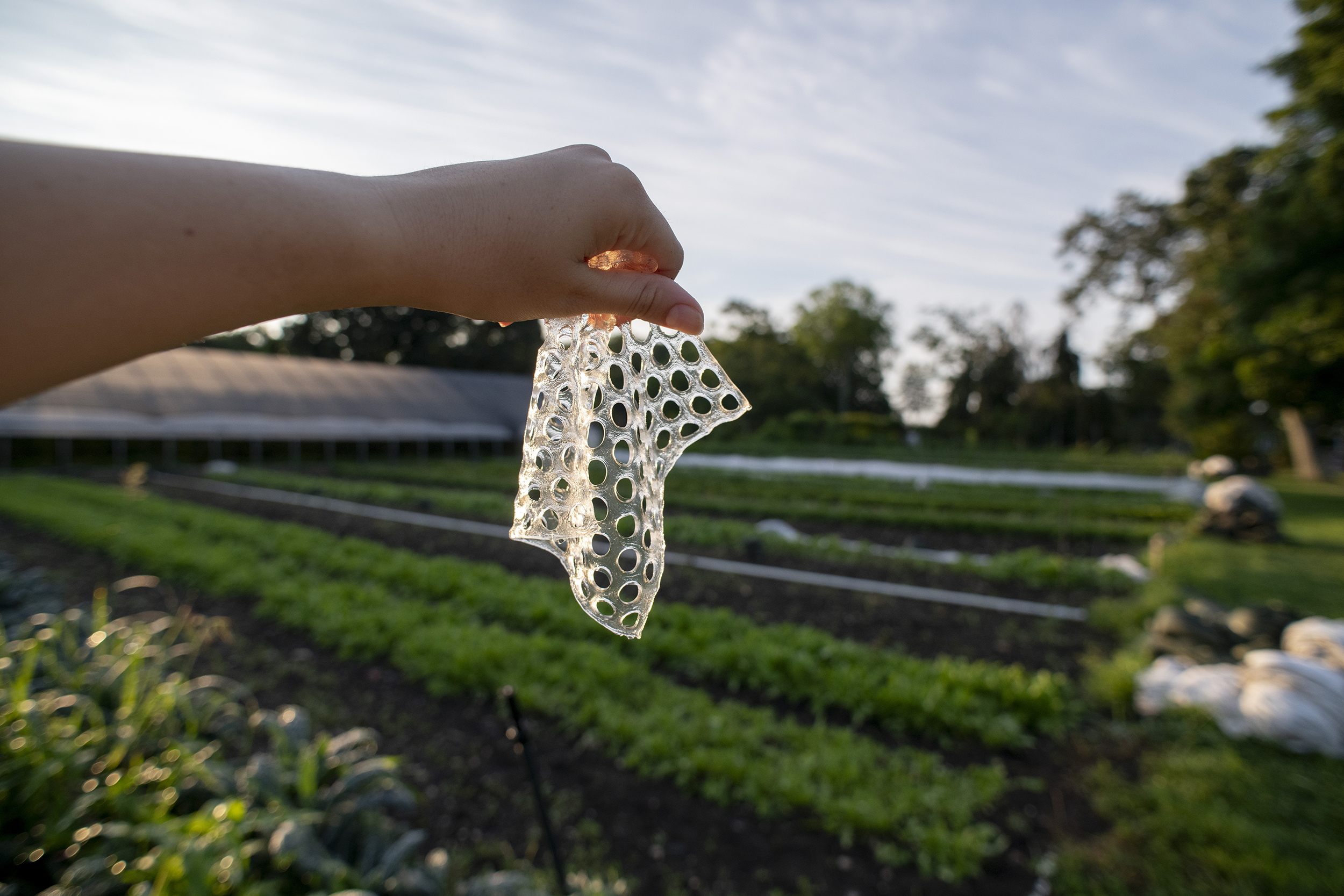
Addressing the climate crisis requires more than just reducing greenhouse gas emissions. It also calls for a radical rethinking of how we manage natural resources worldwide, moving away from an extractive model to an approach rooted in stewardship.
In the School of Liberal Arts and Sciences, Professor of Chemistry Cindi Kehlet is leading an interdisciplinary team in the development of AquaSteady, a kelp-based hydrogel designed to help crops withstand drought. By drawing on the natural water-retaining properties of kelp, the project aims to provide farmers with a sustainable tool for managing agricultural water usage as global rain patterns shift.
On Pratt’s Brooklyn campus, students are engaging with circular design through the Textile Dye Garden, which explores the environmental impacts of natural dyes and sustainable textile practices. The garden also serves as a space for experimentation, education, and interdepartmental collaboration.
In the Engineering Building, students can experiment with natural fibers such as silk, cotton, and wool, an intentional shift away from synthetic, plastic-based textiles, in the Textile Research Lab, an extension of the Material Lab, a collaborative hub within the School of Design that provides access to an extensive library of over 25,000 unique material samples.
The lab’s workshops and programming guide students in analyzing composition, sourcing, and life-cycle effects, fostering more responsible design practices. The annual Material Lab Prize celebrates exceptional interdisciplinary student work that prioritizes sustainability and circular thinking in product development.
In recognition of this multifaceted work and Pratt’s commitment to climate resilience, the Institute recently earned a Gold STARS rating in the 2025 Sustainable Campus Index from the Association for the Advancement of Sustainability in Higher Education (AASHE) for the third consecutive year, affirming its place among the nation’s top sustainability-focused colleges and universities.
